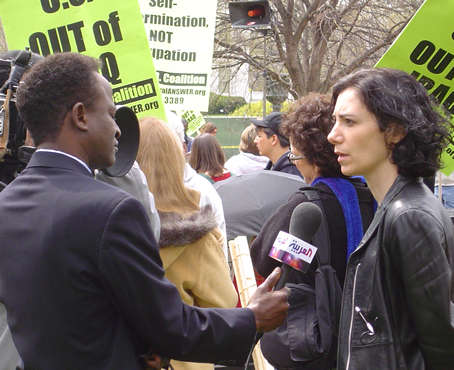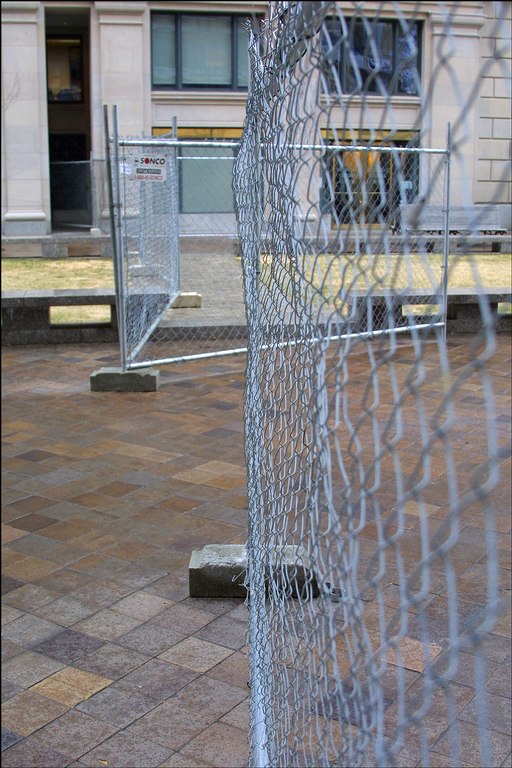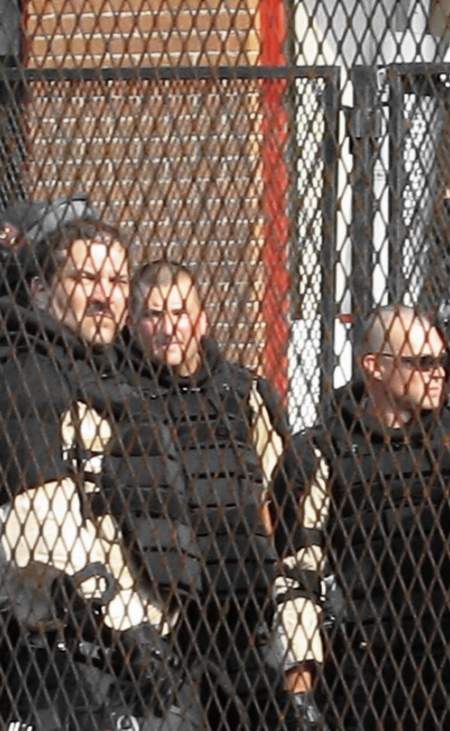Podcast: Play in new window | Download

The First 100 Days: Dismantling the Police State in a New Presidency – Part 2
This is the second of a three part special. Law and Disorder hosts bring a series of interviews with key attorneys, authors and activists from the front lines such as the Center For Constitutional Rights, Universities of Law and the National Lawyers Guild. Some of the police state policies are beginning to be reversed such as closing down secret CIA sites, a timeline to shut down Guantanamo, and mandating everyone CIA included follow US Army Field Manual Interrogation tactics.
Recently the Obama Administration defended the telecom wiretapping legislation. Attorney General Eric Holder told Senator Orin Hatch – “The duty of the Justice Department is to defend statutes that have been passed by Congress.”
CCR staff attorney Shane Kadidal explains in detail the 3 main groups of Guantanamo detainees, the laws that allow for secret sites, FISA wiretapping, National Security letters, data mining and the Patriot Act.
Shane Kadidal:
- The Three Groups in Guantanamo: First Group – Two dozen genuinely involved with “Al Qaeda” – planning terrorist activities – the people who would be tried in federal courts if GTMO never existed.
- Second Group – Shouldn’t have been there in the first place. The US says they may charge as many as 80 people, there are 255 people left, that means there are close to 200 people that the US gov’t will send home. Like the 500 people who have already been sent home from GTMO.
- Subgroups – there are about 110 Yemenis waiting to return back to Yemen
- Third group: Guantanamos refugees who come to GTMO from places with horrible human rights records, Syria, Uzbekistan, Tunisia, about 13 countries where we ordinarily give them asylum. We can’t return them in good faith back to the countries they are citizens of. Find traditional asylum accepting countries to send them to largely in Europe.
- Secret Sites: The next president could decide to end the secret sites – Who is accountable for sending people to black sites to be tortured? – Military Commissions Act gives those involved immunity from actions that would have been violations of the War Crimes Act or Anti Torture Act
- Repeal MCA – Once you do that, then any officials participating in the black sites have to worry the rest of their lives of being criminally prosecuted for what they did.
- Repealing the MCA would restore Habeas Corpus to full flower that Supreme Court did in the case of Razul and proper judicial oversight regarding detentions.
- Repudiate the whole practice of using black sites and rendition
- Torture: There is one measure out there to propose that the military revert to the model of the Army Field Manual, that actually has acceptable interrogation tactics. – Done
- The Army Field Manual was designed by Interrogation experts with long history of experience and know from practical experience that torture doesn’t work in producing reliable information.
- All of this can be done by executive order, a stroke of the pen as Clinton used to say.
- FISA – wiretapping – the secret court that approves wiretaps – The historic model was that law enforcement would have to present a little bit of evidence of suspicion and that the court would authorize the person to be wiretapped. You go to the judge you get the order directed to one person.
- Right now, it’s broader, instead of going to a judge with specific evidence and getting specific authority for a very limited wiretap. Now based on the FISA Amendments Act passed this summer of June 2008, – they seem to want to get authority to do a wholesale authority on wiretapping and they’ll give the judge criteria in very rough terms. The discretion of law enforcement no longer limited.
- The colonists wrote the fourth amendment with the warrant requirement in it because they were concerned the king had issued these general warrants to allow his agents to run around where there might be violations of the stamp tax act.
- The Supreme Court may argue that the fourth amendment is outdated and allow the broader wiretap powers.
- Also, a new president coming in may decide not to use this power, but there is going to be a great deal of inertia from the intelligence agencies who had five or six years of this power under the NSA
- Its hard to get rid of this entrenched thing, they’ll come to the president with all sorts of arguments.
- This is an area where Congress would have to step in to restore post Watergate era restrictions that were put in place in the FISA act in 1978
- Patriot Act – A lot of it hasn’t been used as predicted.
- Preventive detention – they can hold citizens for 7 days without charge/ but the president asserted executive power to hold citizens and non-citizens without charges for years.
- Now the Patriot Act looks like a model of checks and balances.
- National Security letters and Data Mining – The government pulls in huge amounts of data both from private sources and things that can accumulate. We know that they were seeking calling records, the story broke in the middle of 2006 from nearly all the phone companies and they complied.
- We know they’ve been seeking search terms in various contexts from internet providers, we know they have worked with Swift which processes interbank tranactions to get huge amount of financial transfer data, financial transactions that happen anywhere in the world.
- They’re putting this into a database to see if they can catch terrorists by applying pattern analysis. The first problem with that is that we don’t know if it works, its likely to have a very false positive rate.
- Very close to profiling and pull in people who should not be made the targets of suspicion.
- There is so little human intelligence on the ground, and its tempting for intelligence agencies to look to for technological panacea.
Guest – Shayana Kadidal has been at the Center for Constitutional Rights (CCR) since 2001. Shane is senior managing attorney of the Guantánamo Global Justice Initiative at CCR. In addition to supervising the Guantánamo litigation, he also works on the Center’s case against the NSA’s warrantless surveillance program, CCR v. Bush, and its challenge to the “material support” statute, HLP v. Gonzales. Shane has testified before Congress on the material witness statute and is a contributor to the Center’s book Articles of Impeachment Against George W. Bush, 2006. He graduated from Yale Law School and clerked for a judge of the U.S. Court of Appeals for the First Circuit.
——————————————————
Mara Verheyden-Hilliard: Criminalizing Dissent
Criminalizing Dissent has chilled most free speech movement in the United States, especially when demonstrators take to the streets. We talk with attorney Mara Verheyden Hilliard co_founder of The Partnership for Civil Justice Legal Defense & Education Fund about criminalizing dissent, surveillance, data mining, fusion centers and the ability to exercise first amendment rights. A recent example were the violations of free speech during the mass arrests of protesters at the 2008 Republican National Convention. The demonizing of protesters and their message in the media will usually allow for the use of military force by police. That combined with intelligence gathering and targeting of lead organizers squelched the voice of dissent in all age groups.
- A lot of our work is at the intersection of first and fourth amendment rights.
- PCJ has a class action suit pending from the world bank IMF protest – 8 year drag out tactic.
- “What they want to do is stage-manage democracy.”
- Victory: After years of litigation the government has to lift regulations on number of people at the Great Lawn
- Is it important to say that we don’t want to go back to Jan 19, 2001 just the day before Bush took office- or is there more that we have to do?
- We think there has to be an audit of every agency’s databases to determine exactly what the databases are.
- Identify what has been collected, where it has been put, who has access to that information,
- Then to tell people in the United States individually, what has been collected on them and then to expunge it.
- For people in their United States, their government collecting information, maintaining information, in these massive database files, that can be used by law enforcement, pulled up in a moment’s notice is really a very dangerous practice.
- What they’ve done is misuse existing databases and data tools.
Guest – Attorney Mara Verheyden Hilliard co-founder of The Partnership for Civil Justice Legal Defense & Education Fund.
————————————————-



